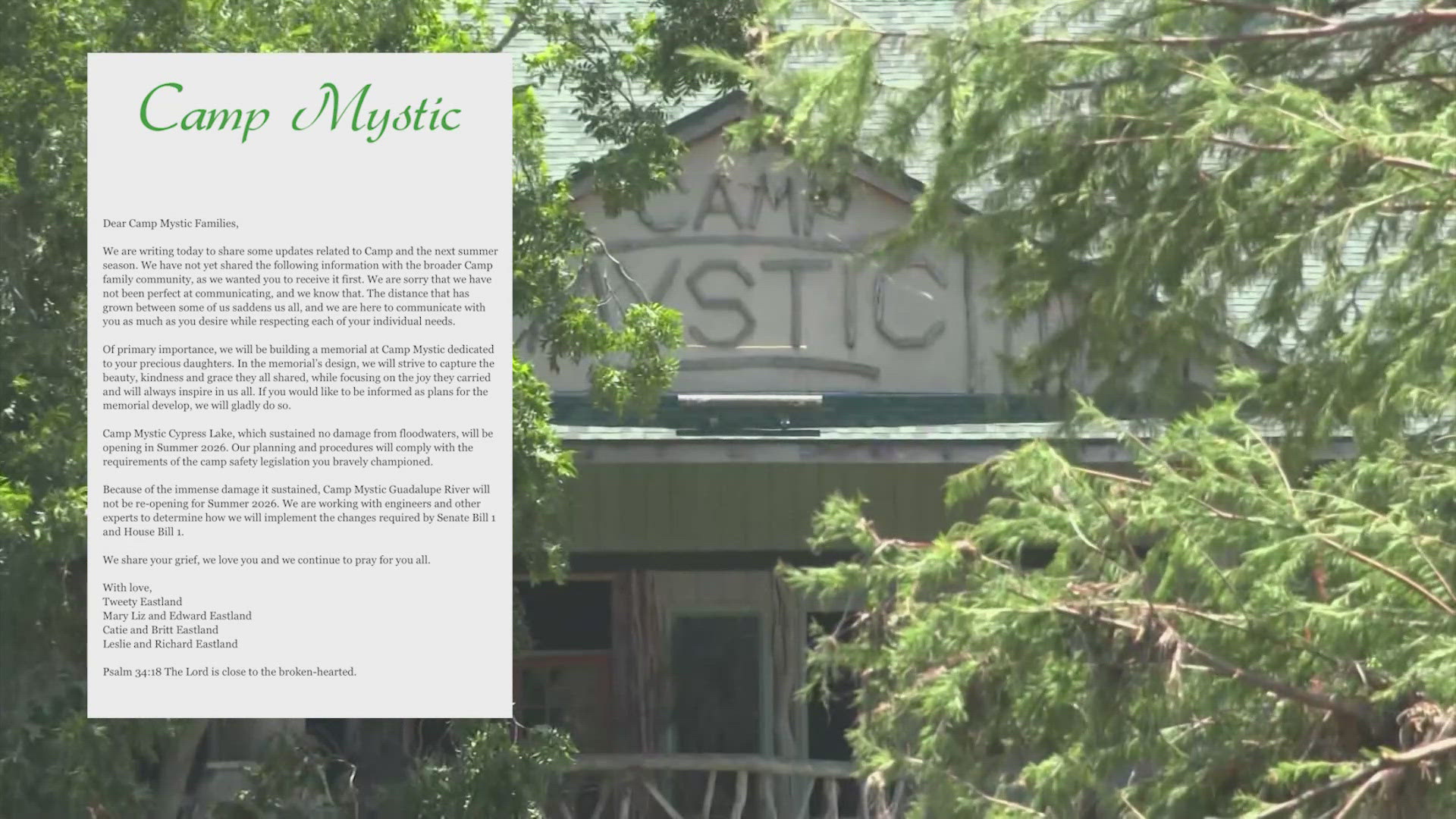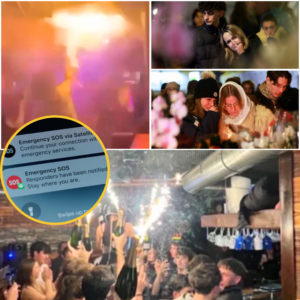HUNT, Texas — Camp Mystic, the longstanding summer retreat in the Texas Hill Country, has announced plans to resume operations next summer at one of its locations, a move that has stirred a range of emotions within its dedicated community. This decision comes in the wake of a severe flooding event along the Guadalupe River in July, which profoundly impacted the camp and surrounding areas. The camp’s leadership, the Eastland family, shared the news through emails sent to alumni and associated families, emphasizing a commitment to rebuilding and enhancing the site’s traditions of camaraderie and personal development.

The announcement highlights intentions to welcome participants back through the familiar green gates, focusing on restoring facilities and pathways. “We are not only rebuilding cabins and trails, but also a place where laughter, friendship and spiritual growth will continue to flourish,” the message to past attendees stated. A second site, established in 2020 near the original along the Guadalupe River, will serve as the primary venue for the upcoming season. This choice reflects careful consideration of the aftermath from the summer’s weather incident, which affected numerous camps in the region but left Camp Mystic particularly touched.
The broader community connected to Camp Mystic, drawn largely from affluent areas in Houston, Austin, and Dallas, has long viewed the camp as more than a seasonal getaway. For nearly a century, it has fostered enduring bonds, with many families participating across generations. The camp’s history includes navigating various environmental challenges, including previous floods, though none as impactful as the recent one. In 2011, federal assessments identified portions of the property as high-risk flood zones, leading to successful appeals by the owners to adjust those classifications, allowing for continued development without additional restrictions.
However, the July event, described by officials as a rare, millennium-level occurrence, prompted swift legislative action in Texas. Families linked to the camp rallied to advocate for enhanced safety standards, resulting in the passage of new regulations known as the Heaven’s 27 Safety Act. Signed by Governor Greg Abbott in September, these measures mandate relocating structures away from vulnerable floodplains, installing advanced detection and alert systems, and ensuring comprehensive emergency protocols. One component of the legislation allocates $240 million from the state’s reserve funds toward disaster preparedness, including sirens and improved forecasting tools. Camp Mystic’s owners have publicly endorsed these changes, noting that such systems could have mitigated the summer’s challenges.
In their communications, the Eastlands outlined steps to align with these new guidelines, collaborating with engineers and specialists to fortify the site. They stressed that cabins previously exposed to water would not be reused, underscoring a dedication to participant well-being. Additionally, plans include erecting a commemorative space on the grounds to honor those touched by the July incident, aiming to reflect qualities like grace, kindness, and joy that defined their presence.

Despite these efforts, the reopening news has not been universally welcomed. Some families closely affected by the floods have voiced strong reservations, feeling the decision overlooks ongoing sensitivities. For instance, one parent highlighted the lack of prior consultation regarding the memorial, stating that resources might better support recovery initiatives still underway. Search teams continue their dedicated work along the river, a process that has drawn appreciation from those involved, even as it underscores unresolved aspects of the event.
Cici Steward, whose family remains in the midst of this search, expressed deep disappointment in a public response: “The truth is, Camp Mystic fell short in its responsibilities toward our loved ones.” She noted the contrast between the prolonged hardship faced by families and the camp’s apparent swift return to normalcy, suggesting that proceeding with reopening feels premature while elements of the incident linger. Similarly, Blake Bonner echoed these sentiments, emphasizing that the affected group had not been involved in discussions about the tribute.
This division reflects the camp’s deep-rooted role in Texas culture. As a Christian-oriented program emphasizing outdoor activities, spiritual reflection, and community building, Camp Mystic has cultivated a loyal following. Alumni networks often extend into professional and social spheres, with spots historically filling years in advance—some even reserved at birth. The upcoming 100th anniversary adds a layer of significance to the reopening, positioning it as a milestone in resilience and continuity.

Yet, questions persist about the precise circumstances of the July floods. Reports indicate rapid water rise, with the Guadalupe River surging dramatically in a short span, overwhelming low-lying areas before dawn. While other nearby facilities managed evacuations, Camp Mystic’s experience highlighted gaps in preparedness. The Eastlands acknowledged communication shortcomings in their message to directly impacted families, expressing regret over any growing distances and a desire to bridge them.
In a broader context, the floods affected the entire Hill Country, leading to widespread infrastructure reviews and community support efforts. The total regional impact included disruptions far beyond the camp, prompting a statewide dialogue on climate resilience and land use in flood-prone zones. Camp Mystic’s trade association, the Camping Association for Mutual Progress, had mixed views on the new laws, with some members concerned about implementation costs, though the Eastlands affirmed their support.
Looking ahead, the camp intends to release its 2026 schedule in early October, with evaluations ongoing for the original site’s potential reconstruction. This phased approach allows time to integrate safety enhancements fully. Proponents of the reopening argue it preserves a cherished tradition, enabling future generations to benefit from the camp’s offerings in a safer environment.
The Eastland family, who have stewarded the camp since the 1930s, signed the announcements collectively, with Tweety Eastland leading the list following the involvement of her late husband, Dick, in the summer’s events. Their statement reiterated no opposition from bereaved parties to the memorial concept, though this has been contested.
As Texas continues to recover from the summer’s weather extremes, Camp Mystic’s path forward embodies the tension between honoring the past and adapting to new realities. The community’s response will likely shape not only the camp’s future but also broader standards for similar programs across the state. For many, the green gates represent more than entry to a summer haven—they symbolize enduring connections tested by unforeseen trials.
